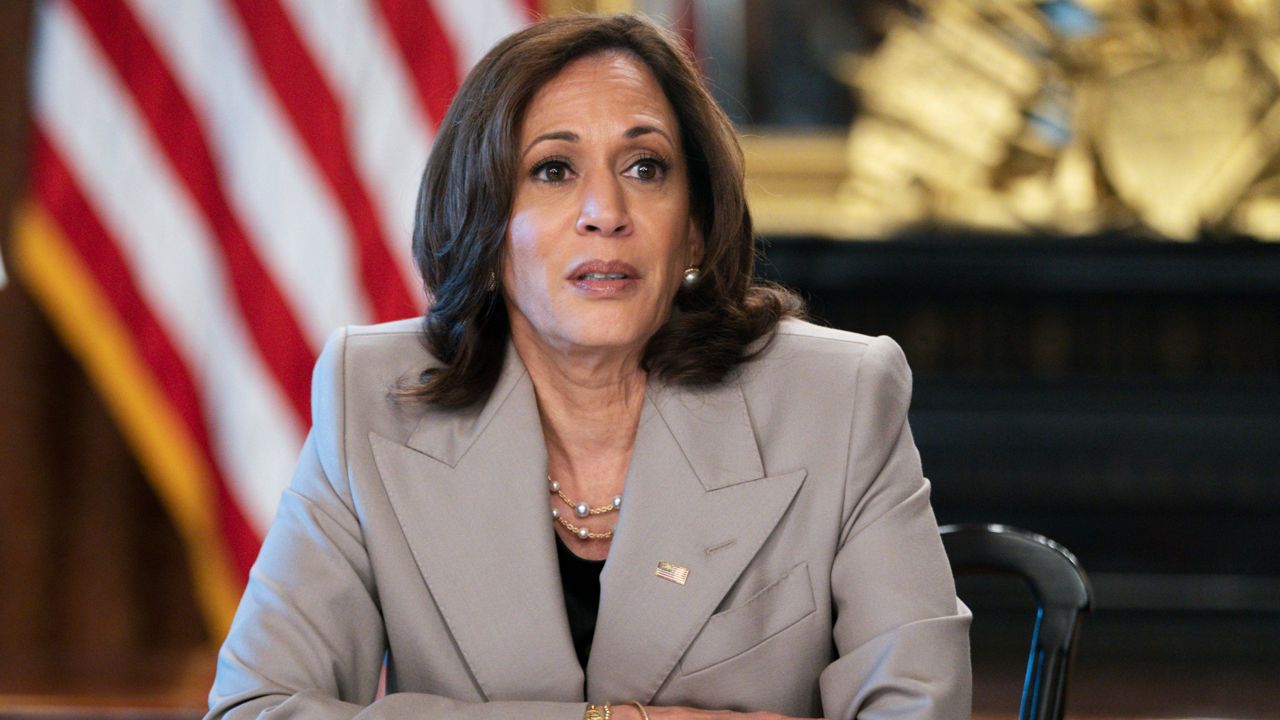Vice President Kamala Harris and other Democratic lawmakers are blaming abortion bans that followed the overturning of Roe v. Wade for the 2022 death of a Georgia woman.
What You Need To Know
- Vice President Kamala Harris and other Democratic lawmakers are blaming abortion bans that followed the overturning of Roe v. Wade for the 2022 death of a Georgia woman
- ProPublica reported Monday that a state medical review committee found the death of Amber Nicole Thurman, 28, to be “preventable”
- On Wednesday, ProPublica reported on a second abortion-related death, also deemed preventable in Georgia
- A Trump campaign spokeswoman said the former president supports exceptions for medical emergencies and that "it’s unclear why doctors did not swiftly act to protect Amber Thurman’s life"
ProPublica reported Monday that a state medical review committee found the death of Amber Nicole Thurman, 28, to be “preventable.” Her case is the first known abortion-related death since the Supreme Court reversed the national right to abortion more than two years ago.
On Wednesday, ProPublica reported on a second abortion-related death, also deemed preventable in Georgia.
“This young mother should be alive, raising her son, and pursuing her dream of attending nursing school,” Harris said of Thurman in a statement Tuesday, before the report of the second death was published.
“This is exactly what we feared when Roe was struck down,” the vice president and Democratic presidential nominee continued. “In more than 20 states, Trump Abortion Bans are preventing doctors from providing basic medical care. Women are bleeding out in parking lots, turned away from emergency rooms, losing their ability to ever have children again. Survivors of rape and incest are being told they cannot make decisions about what happens next to their bodies. And now women are dying. These are the consequences of Donald Trump’s actions.”
In a statement to Spectrum News, Karoline Leavitt, the national press secretary for former Trump’s campaign, said, "President Trump has always supported exceptions for rape, incest, and the life of the mother, which Georgia's law provides. With those exceptions in place, it’s unclear why doctors did not swiftly act to protect Amber Thurman’s life.”
Georgia bans abortions after six weeks of pregnancy except in cases involving medical emergencies, pregnancies in which the unborn child is not expected to survive, rape or incest.
Abortion-rights advocates have argued that such laws are often vague and doctors are reluctant to perform emergency abortions out of fear of being prosecuted.
According to ProPublica, Thurman, who had a son who was 6 at the time, developed a rare complication from abortion pills and did not expel all of the fetal tissue from her body. She visited a hospital in need of a routine procedure called a dilation and curettage, or D&C, but doctors waited 20 hours before operating, the report said. In the hours between, Thurman’s infection spread, her blood pressure fell, and her organs began to fail, according to the report.
A state panel that reviews pregnancy-related deaths deemed Thurman’s death preventable and said the hospital’s delay in performing the procedure had a “large” impact on her death, ProPublica reported.
The same committee also determined that Candi Miller’s death in 2022 was preventable, according to a ProPublica report Wednesday.
Doctors had warned against Miller, a 41-year-old mother of three, having another child because her body was fragile from lupus, diabetes and hypertension. After she unintentionally got pregnant, Miller, without the option of seeking an abortion in Georgia, ordered abortion pills and, too, had a complication and needed a D&C, according to the report.
Instead of seeking medical help, she stayed home and died in her bed, ProPublica reported. A medical examiner was unable to determine her cause of death but found that Miller’s abortion had not been fully completed and that she had taken a lethal combination of painkillers, including fentanyl, according to the report.
Her family said she had no history of drug use and told the coroner she did not visit a doctor “due to the current legislation on pregnancies and abortions,” the report said.
The state review panel blamed Georgia’s abortion ban for Miller’s decision to manage her abortion alone and her reticence to seek medical care, members told ProPublica.
Many other congressional Democrats have joined with Harris in pointing the finger at Republicans and Trump, the GOP presidential nominee, for the abortion-related deaths. Some Democrats renewed their calls for Congress to restore Roe v. Wade through legislation.
“Amber Nicole Thurman died because a Trump Abortion Ban denied her access to reproductive health care,” Rep. Nancy Pelosi, D-Calif., the former House speaker, wrote Wednesday on X, formerly Twitter.
“Make no mistake: this preventable death is the direct consequence of actions taken by the Trump-appointed Supreme Court and Republican lawmakers to tear down Roe v. Wade,” Pelosi added.
“Abortion bans have fatal consequences,” Sen. Raphael Warnock, D-Ga., posted. “Amber Thurman should still be alive, and this tragedy should never have happened.”
“How many more lives will it take until we realize this is about the health & wellbeing of women?” Rep. Rosa DeLauro, D-Conn., wrote on X. “All women must have the right to emergency medical care, including abortion. No woman’s life should be in jeopardy because of where she lives.”
Meanwhile, the group Susan B. Anthony Pro-Life America blamed the abortion pills for Thurman’s death and argued Georgia’s law clearly allows doctors to perform emergency abortions.
“Georgia’s pro-life law is not the reason for her death,” it wrote in an X post. “Dangerous abortion drugs, and fearmongering about pro-life laws, are.”
Rep. Chip Roy, R-Texas, also blamed abortion drugs.
“Amber Thurman took an abortion pill that killed her; GA law had nothing to do with it,” Roy posted on X. “This case is more evidence that the chemical abortion industry does not care about women.”
Deaths linked to abortion pills are extremely rare. According to the FDA, out of nearly 6 million women who took the drug mifepristone from 2000 to 2022, there were 32 deaths — some of which were the results of homicide, suicide and overdoses from combining it with other drugs.
Twenty-two states ban abortions or restrict the procedure before viability. Eighteen of those have either total or six-week bans.
Ryan Chatelain - Digital Media Producer
Ryan Chatelain is a national news digital content producer for Spectrum News and is based in New York City. He has previously covered both news and sports for WFAN Sports Radio, CBS New York, Newsday, amNewYork and The Courier in his home state of Louisiana.






